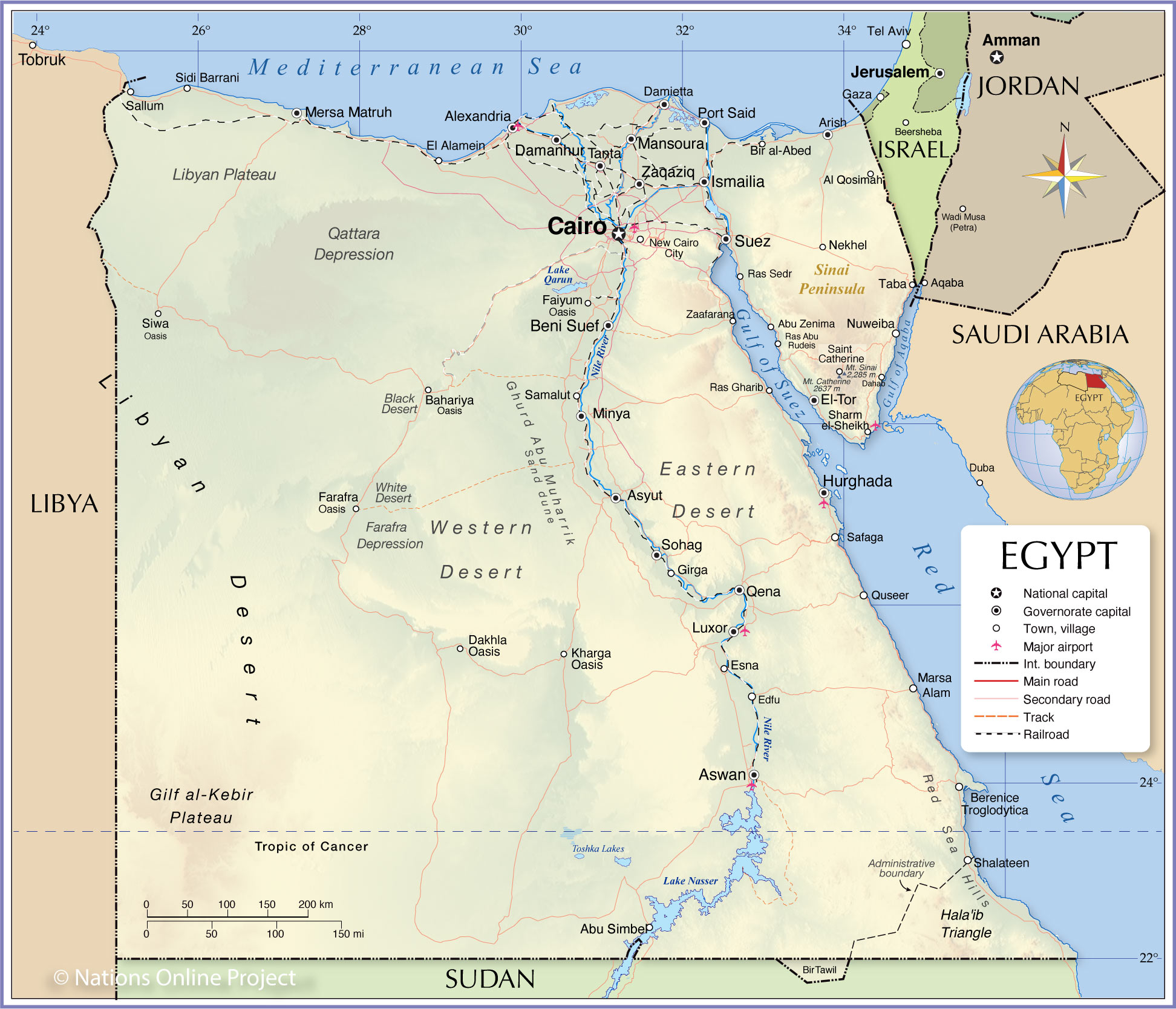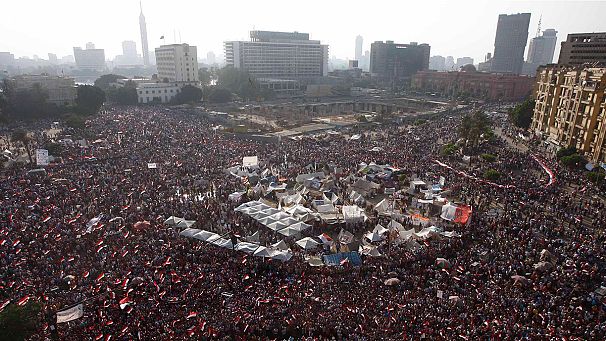Yesterday, there was a military coup d’état in Egypt.
It was not,
as is commonly supposed, aimed at the Muslim Brotherhood government of
President Mohammad Morsi. Yes, Morsi was overthrown, and is allegedly currently
being held in an “undisclosed location”, but he was not the primary target of the coup.
Why do I say this?
I say this because Morsi has been among the
walking dead for some time now. When thirty three million people rise up in
protest against you, you’ve only two options. Quit, or unleash holy hell on
them. If you’re to do the latter, better be sure that either you’re a nuclear power with a credible deterrent, or you’ve got what Chinese Emperors used
to call the Mandate of Heaven (said Heaven being Washington these days; that’s
why the Bahrain regime can get away with gunning down protestors on the streets
with hunting rifles). Otherwise, you’re toast.
Obviously, Morsi had neither. In other
words, he was going down.
Now, let me say a couple of words about the
Egyptian Army. The Egyptian Army is not a very nice institution. In fact, it is
a completely brutal, thoroughly politicised, institution full of thugs whose
allegiance is not to Egypt, but to its own interests (it directly controls more than one-third of the Egyptian economy), and to its own interests
alone.
Let us not forget that the ex-dictator,
Hosni Mubarak, who was overthrown in 2011, and who is in prison now, is a
former Egyptian army general and that he only fell when the army no longer
propped up his regime.
Ever since the early 1970s, the Egyptian
Army has no longer been the property of the Egyptian state. It has, instead,
been the property of the United States of America, which provides it huge
amounts of military assistance, and which, in consequence, controls all its
activities. The Egyptian army could never have contemplated this coup without
the blessings of the US, just as it could never have abandoned Mubarak till the
US gave the go-ahead to abandon him.
So just why should this army suddenly be so
filled with concern for the protesting people that it would overthrow the new
ruler, as it allowed the old one to be overthrown?
The answer is, of course, that it didn’t.
The coup wasn’t aimed at unseating Morsi,
who was as good as gone. It was a pre-emptive coup, aimed against the people of
Egypt, and with only one end in mind – to
prevent the emergence of a genuinely popular government or leader. Whoever
takes over now will do so under the army’s supervision, and will be under the
army’s control.
Why should the army want to keep the
government under control, and why should the Empire allow this?
The first part of the answer is that, as I
said, the Egyptian Army only looks out for its own interests. The last thing it
wants is for any genuine popular government which will clip its wings. It’s
seen what Erdogan did in Turkey to the Turkish army, and it has absolutely no
desire to be similarly cut to size.
As for the Empire...
Of all the Arab nations, Egypt is probably
the most important. Saudi Arabia is important because of its oil; Iraq because
of its oil and its strategic position near Iran; but Egypt, the most populous
Arab nation, sits between Asia and Africa, and connects the two halves of the
Arab ummah together. Also, it’s right on the border of the so-called state of
Israel, and the Zionist entity’s security trumps all other considerations where the American empire is concerned.
Therefore, the Empire wants to – in fact,
the Empire must – control Egypt. It
got its lucky break when Nasser died, and his successor Sadat handed the nation
over to it on a platter. It’s fine with a fundamentalist Muslim government
being in power – after all, Muslim fundamentalism and American imperialism have
always been the best of allies – as long as the fundamentalists manage to hold
on to power and the lid down on protests. However, if the protests grow to a
critical level, the Empire has to step in and manage a transformation.
That’s why, until it grew evident that he
couldn’t hold on any longer, the Empire backed Mubarak – and that’s why it’s still
backing Erdogan in Turkey, where the protests haven’t yet reached critical
mass. Once the protestors reach that level, though, the formerly loyal dictator
becomes dispensable – the Empire’s only desire is to maintain control, by all
means possible. Since it owns the army, the tool’s ready to hand.
Therefore, the people who are rejoicing at
the overthrow of the Morsi government are seriously deluded. Morsi was not overthrown by the people; if he had,
there would’ve been cause for optimism. He was overthrown by the army – and the
army is emphatically not on the side
of the people.
At this point, the fate of Morsi is
probably unimportant, except to prove again to Washington’s toadies that being
an American lackey has a short shelf life. Morsi can go to the wall as far as
his relevance goes; it’s who’ll come after him that matters. This person will either be an army-backed dictator, or a rubber stamp owned lock, stock and
barrel by the US Empire. Either way, his only purpose in power will be to
perpetuate the military’s and its American masters’ interests.
Since this isn’t the medieval era, the
facts won’t be hidden forever, and just as the overthrow of Mubarak was soon
followed by protests against Morsi, so the next puppet ruler will soon face
protests of his own. Over a period of time, these protests might force a
genuine change. It might happen someday. But it will not happen as long as the
Zionist entity and the American Empire do not allow it.
That’s something the people cheering at
Morsi’s fall are about to find out for themselves, I think.
http://www.syrianews.cc/washington-egypts-coup-detat/



That's the problem...facts have a way of hiding until the people are feeling happy and calm. When the protests have cleared and it looks like everyone got what they want, those REALLY in power drop the hammer and the people lose...as usual.
ReplyDeleteI always appreciate your take on world events and find them more in-depth and credible than anything else I can find anywhere.
ReplyDeleteYes, Bill. A good result might come - someday, but not anytime soon, I'm afraid. As you say, there just wasn't enough time to develop the kind of movement that was necessary to really challenge the system and so many mistakes were made by honest youth that were manipulated by deep state forces. A lot of food for thought there. We really feel sad about this development because we got an opportunity to see the hope and enthusiasm when it began.
ReplyDeleteAnother thing - Erdoğan has clipped the military's wings quite a bit but that could change. Turkey is trying many of its deep state coup plotters but many think they're still alive and capable of kicking.
ReplyDeleteI'm not very savvy when it comes to international politics, but my general rule of thumb is that when I see a series of coups occur in the same country - or a series of administrations snuffed out in fast succession, I will assume that the United States is installing people.
ReplyDeleteWhen the media is calling the United States leadership "cautious" in its approach to endorsing the new (or old) leadership), this is also generally a good sign that it has a very strong opinion and is hip-deep in the goings-on.
About 10 years back, the US installed six or seven Argentinian Presidents in a very short period of time. Most of the them ended up having to be picked up from the roof of the palace by US helicopters because the people didn't want our puppets. We claimed not to care about those elections.
So I hate to be cynical about these things, but I generally find I can't be cynical enough.
well that blows, i was wondering and you confirmed my fears :( so now onto Tunisia. US again or other ?
ReplyDelete